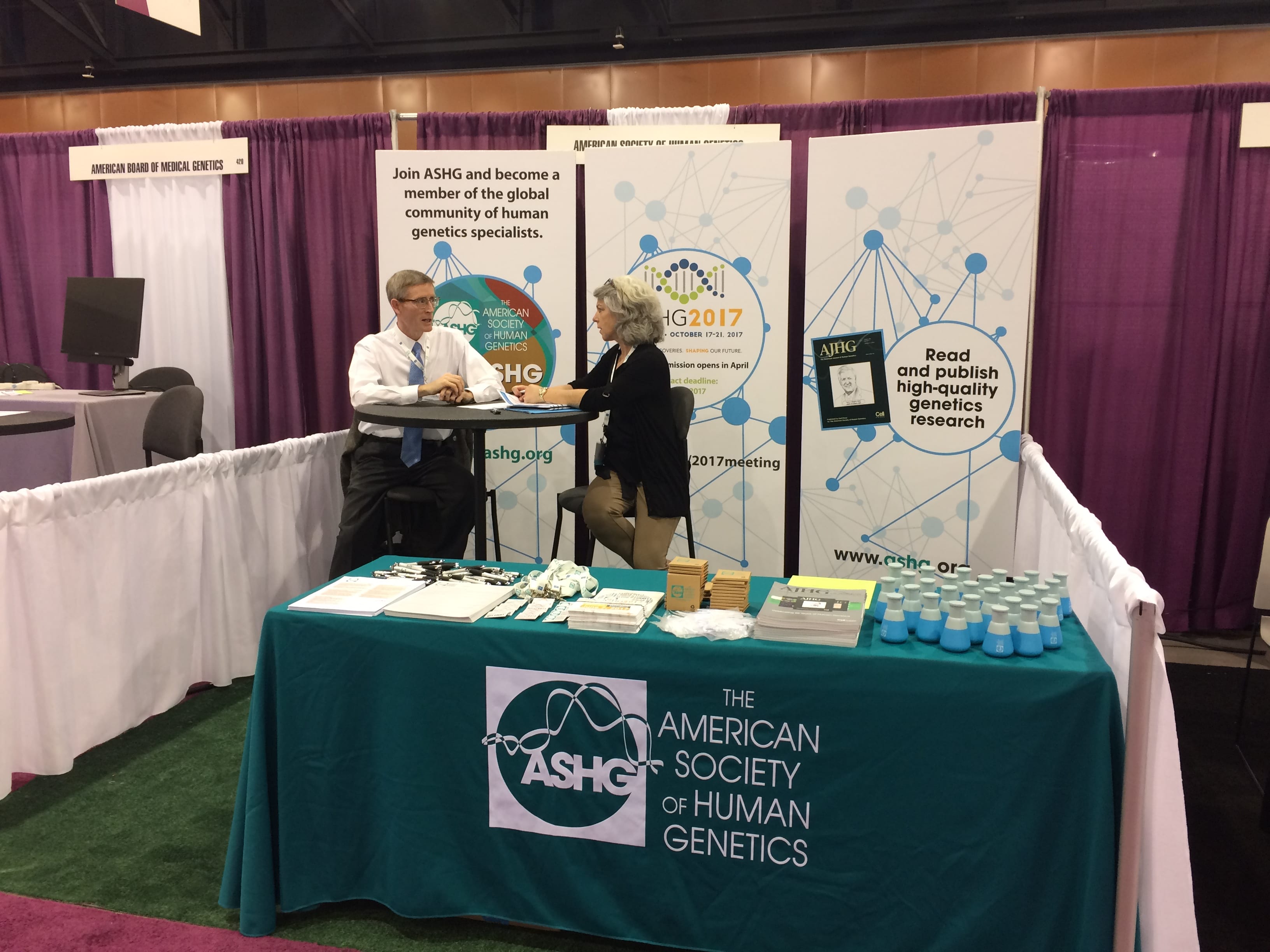Posted by Karen Hanson, MS, MBA, CGC, Health Professional Education Programs Manager at ASHG
Last month, I had the opportunity to attend the American College of Medical Genetics and Genomics (ACMG) 2017 Annual Meeting. As a genetic counselor working on health professional education at ASHG, one theme stood out to me: the rapid integration of whole genome/exome sequencing (WGS/WES) into clinical practice.

Apparently, we are sequencing everyone – sick people, healthy people, adults, children, babies, and fetuses. The inspiring talk by William Gahl, MD, PhD, NHGRI, NIH about the work of the Undiagnosed Diseases Network (UDN) reminded us all of why we (researchers, clinicians, laboratorians) entered this field. This session showcased what could be thought of as the most traditional use of WGS/WES in the clinic: using advances in genomic sequencing to improve diagnostic outcomes in patients with suspected genetic disease. It’s now less likely that patients and families will struggle without a diagnosis for years.
Infants born with congenital anomalies or metabolic disease are also benefiting from rapid sequencing technologies that allow their physicians and families to quickly treat and manage them. And it’s not just ‘sick’ babies that are being offered sequencing. Several clinical trials are looking at the efficacy and outcomes of sequencing ‘healthy’ newborns. For years, the genetics community has talked about when the day would come that all newborns have a ‘genetic’ barcode (consider that the movie Gattaca turns 20 this year!). Newborn screening programs have already expanded to include dozens of carefully selected disorders, and WES almost seems like a logical next step. However, in at least in one clinical trial, the majority of parents of healthy newborns who were offered WES declined testing. So maybe we are not quite ready yet.
Another session was devoted to genomic sequencing in ‘healthy’ adults. The current scientific atmosphere certainly seems right for this, when you consider the advances in sequencing technology, the rapid growth of variant databases, and the push for personalized medicine. It did occur to me that we haven’t really worked out the ethical and logistics dilemmas we encounter through WGS/WES of ‘unhealthy’ individuals. However, to paraphrase Les Biesecker, MD, FACMG, NHGRI, genome sequencing is here and it’s not going away. The dilemmas associated with sequencing ‘healthy’ people are not new – variant classification, not enough genetic professionals, health provider education, and access to diverse and underserved populations. But overall, the intention is good – to use genomic technology to improve health and patient care. Which for me begs at least one question: who’s going to manage all these ‘patients’? After all, we will all be ‘patients’ after we get our WGS test results.
So, as a genetic counselor working on health professional education at ASHG, I think of all this as job security. My job – our job as geneticists – is cut out for us. We need to educate our medical workforce and all the rest of the ‘patients’ out there about genomic medicine. And who better to do it then those of us who have been and still are in the trenches.
Karen Hanson, MS, MBA, CGC, is Health Professional Education Programs Manager at ASHG. Read more about ASHG’s educational programs for health professionals.
